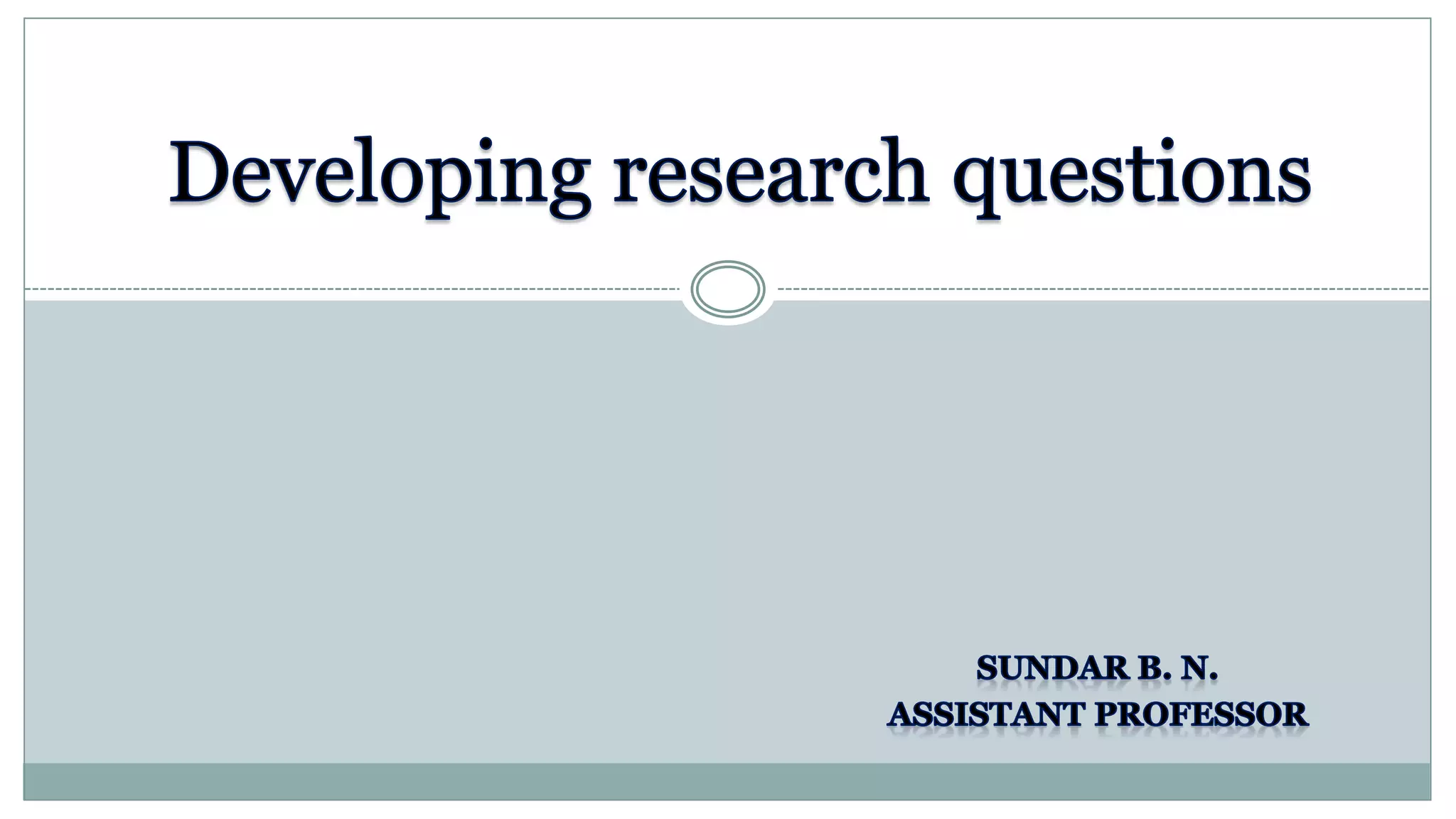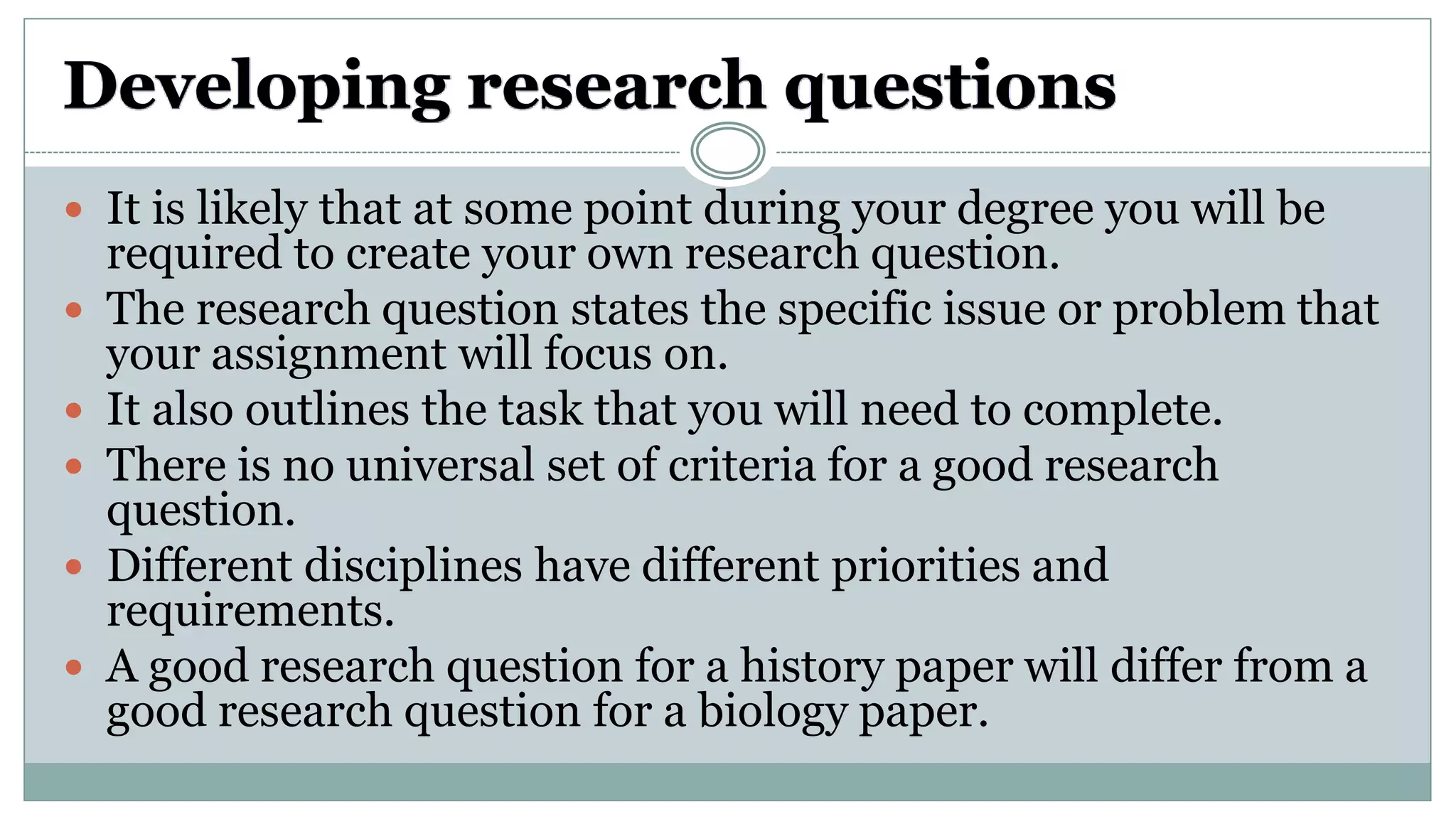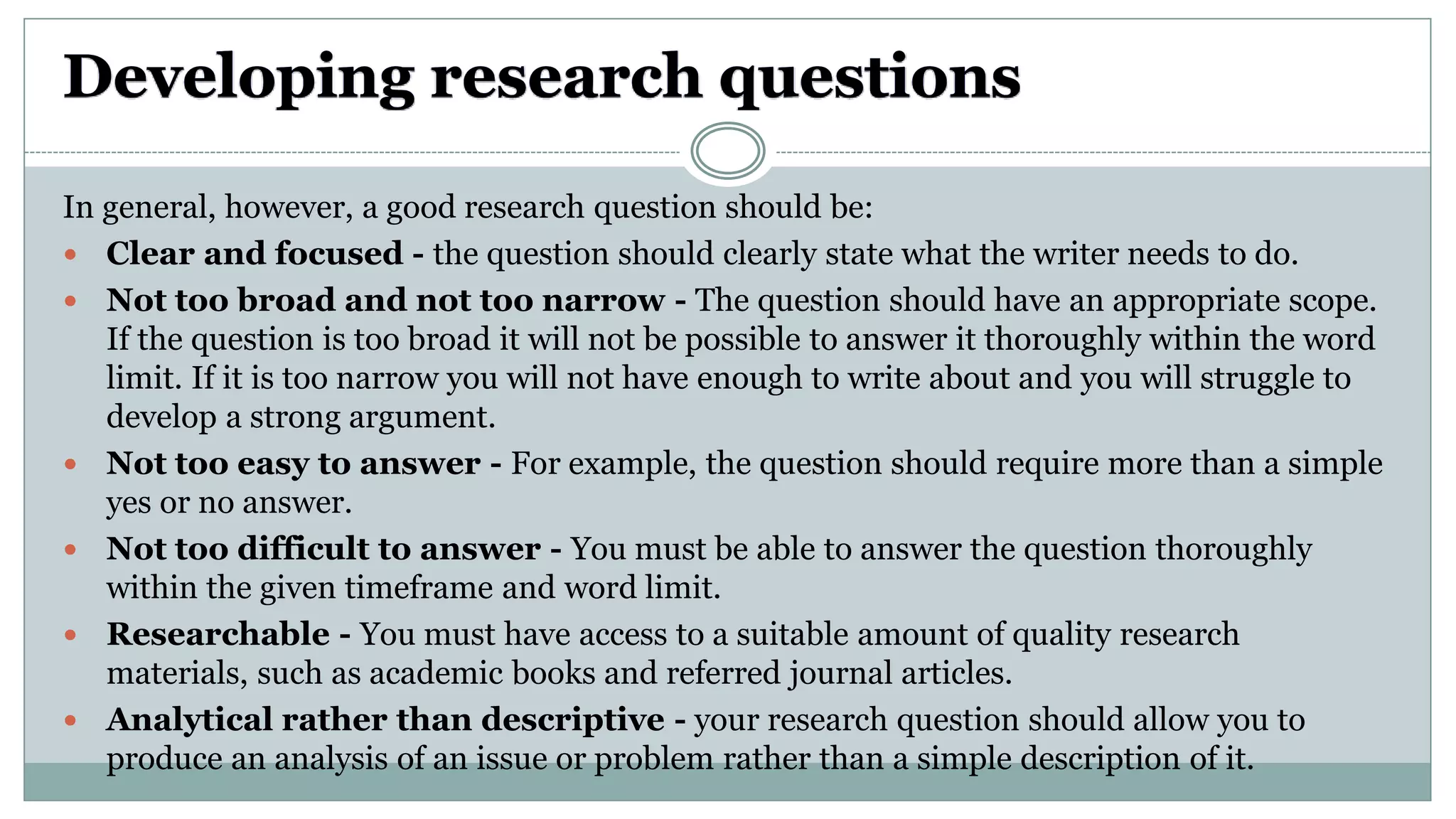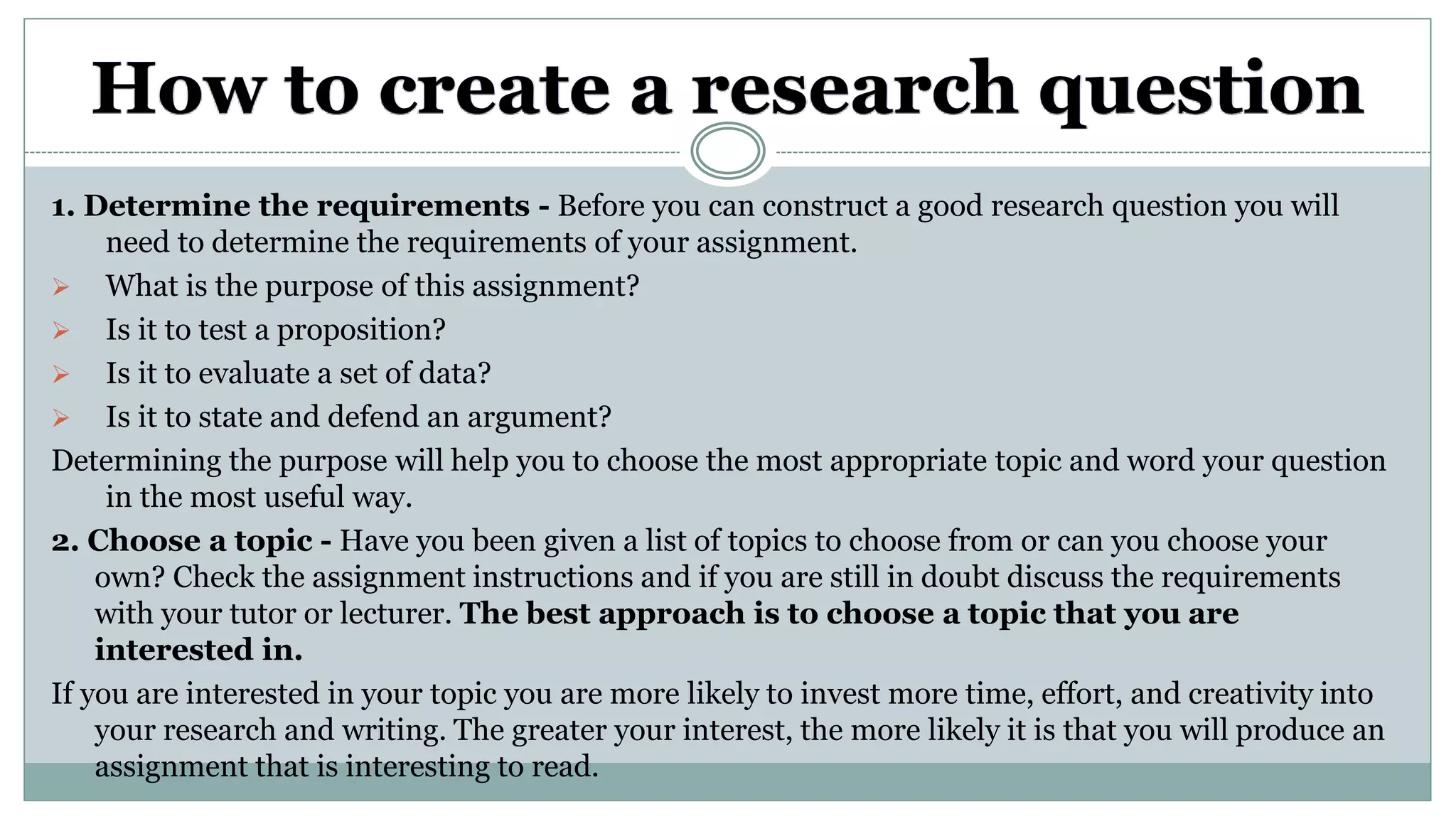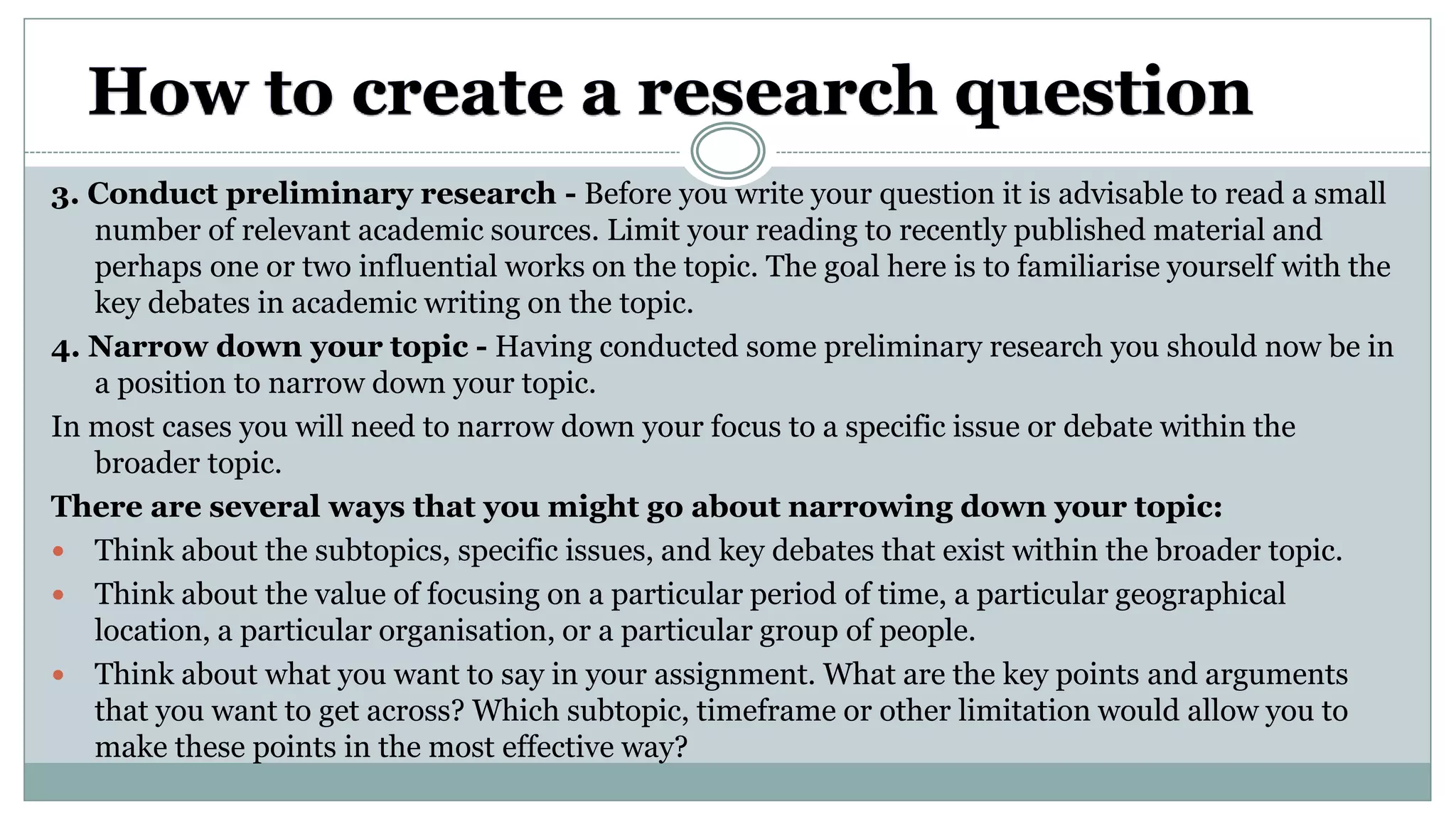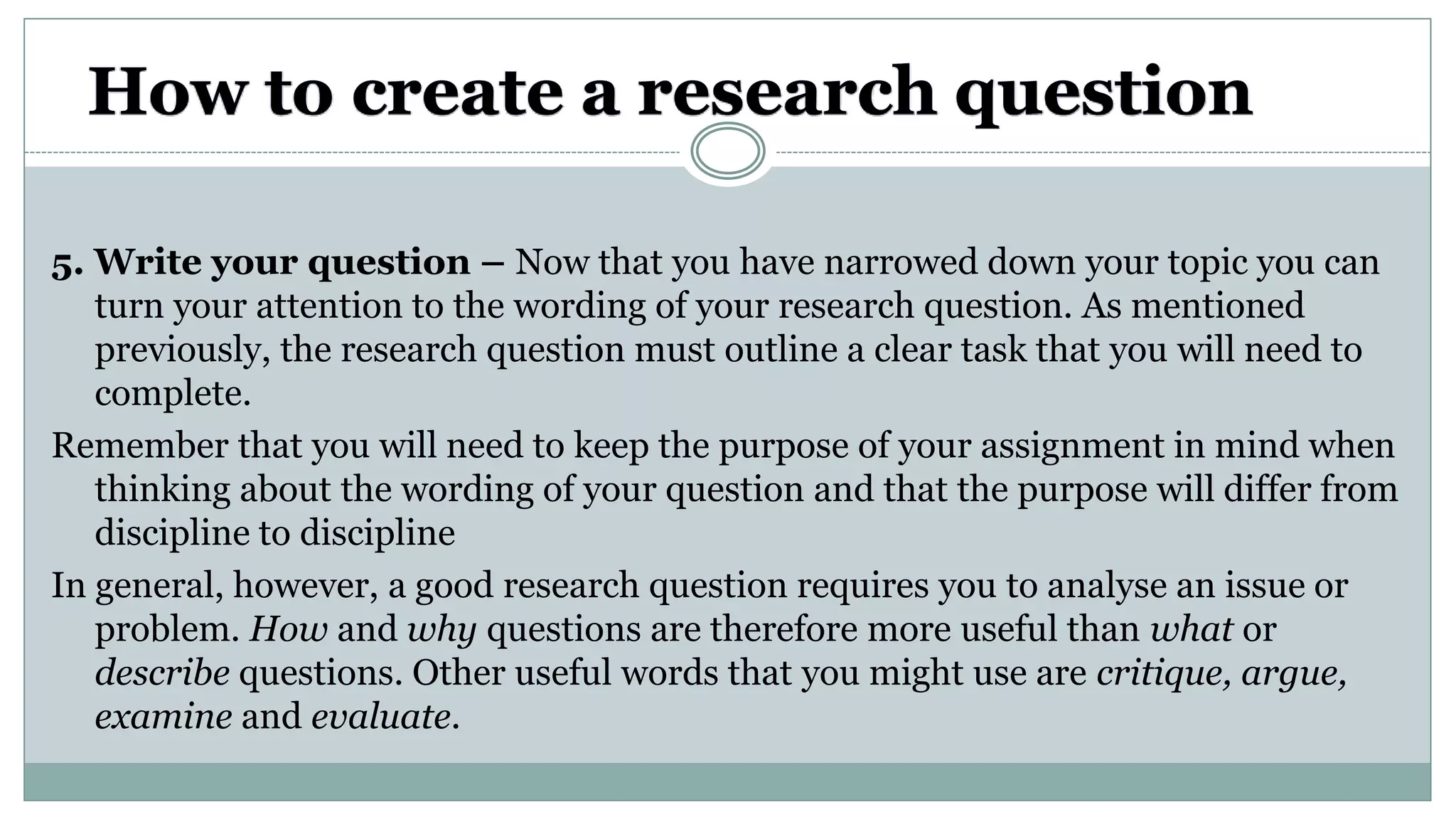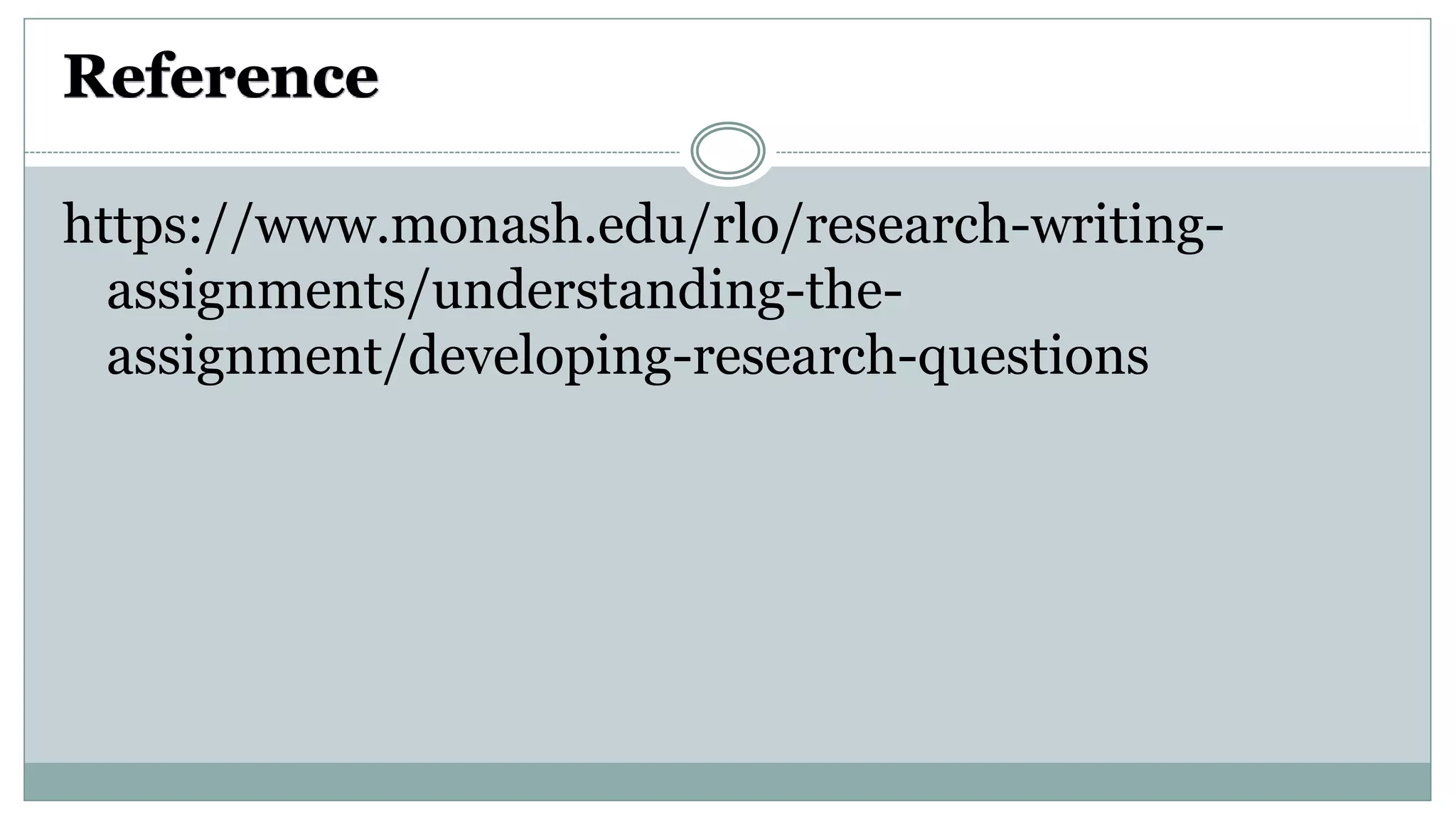This document provides guidance on developing a good research question. It explains that a research question should be clear and focused, have an appropriate scope (not too broad or narrow), require more than a simple yes/no answer but be answerable within constraints, be researchable using available sources, and allow for analysis rather than just description. It then outlines five steps for developing a research question: 1) determine assignment requirements, 2) choose an interesting topic, 3) conduct preliminary research, 4) narrow the topic, and 5) write the question focusing it on analysis of an issue.
